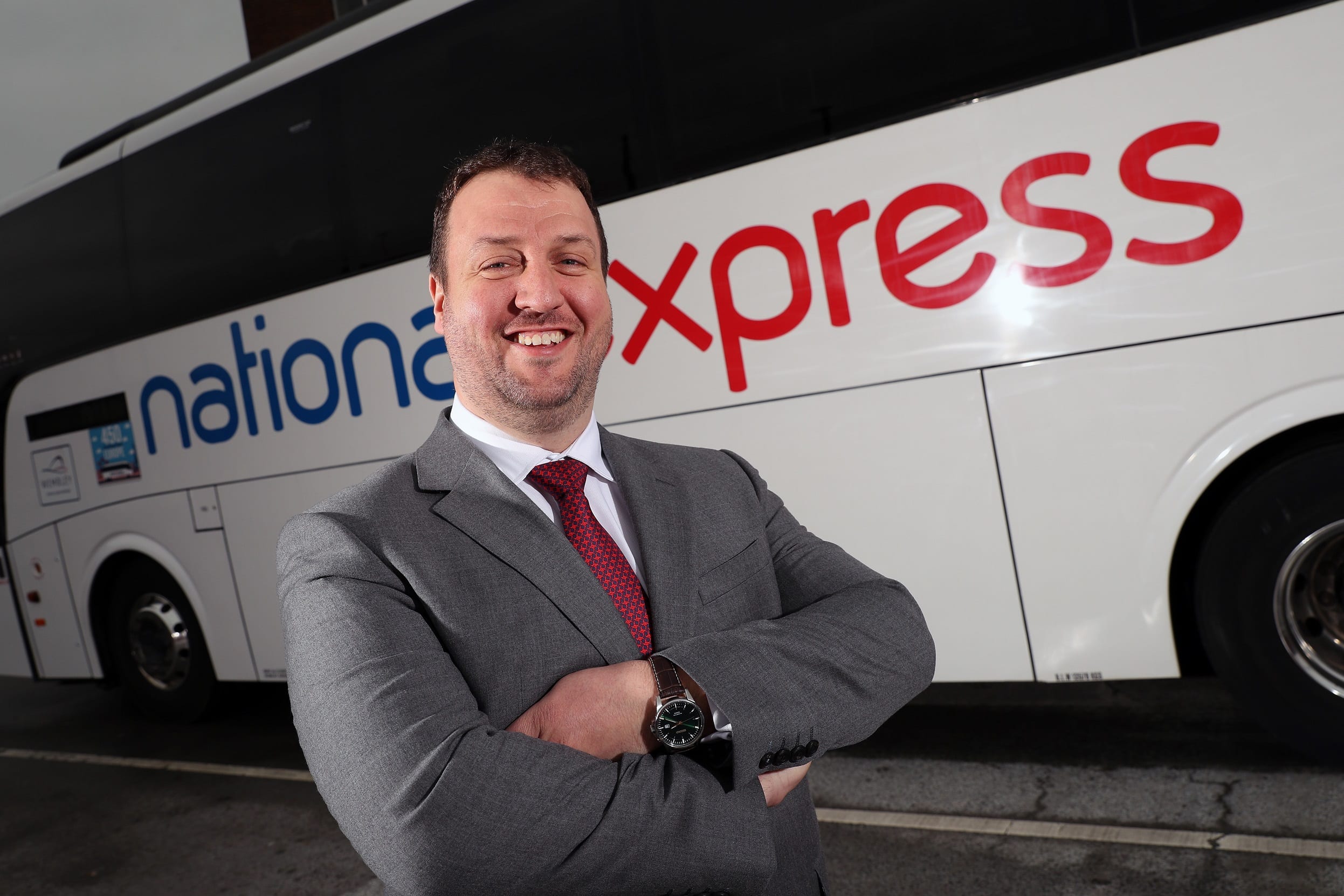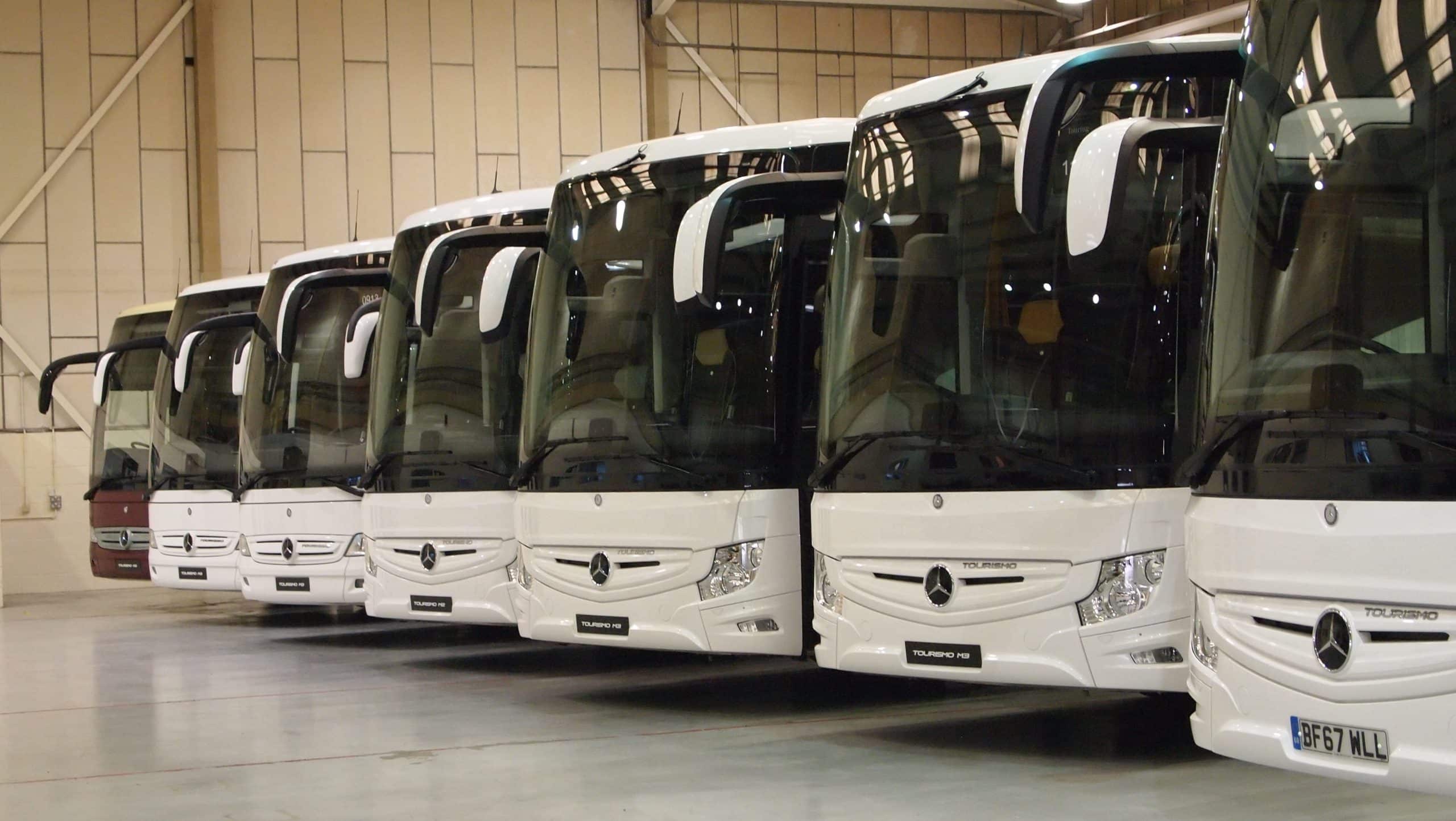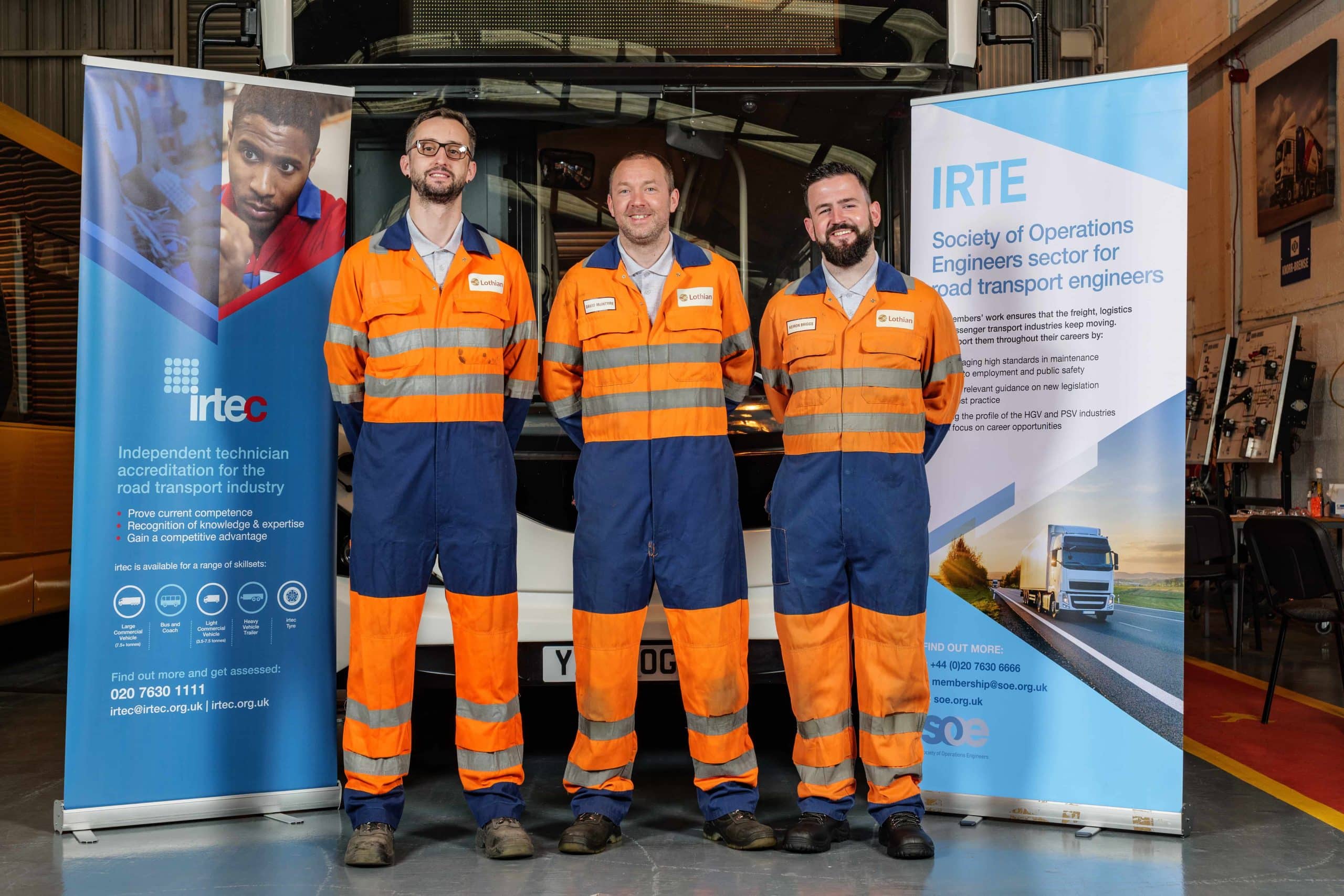Scheduled coaching was hit hard by COVID-19. But it is now coming back rapidly; patronage in some cases is above what it was in 2019, while zero-emission operation – already evident in Scotland – is set to become more prominent over the coming years.
That is the view of National Express UK Coach Managing Director Chris Hardy (pictured, above). He observes that the operator’s network was largely split into two segments by the earlier part of pandemic recovery.
Inter-city is back strongly.It is between some of those nodes that ridership is now above the position three years ago. Airport services returned more slowly at first, but are now gaining ground quickly. Chris aspires to achieve 2019’s overall volume of travellers by the end of this year “and then exceed it in 2023.”
Challenges to rail have created an opportunity for scheduled coach operators, he adds. National Express did good business on and around rail strike dates, recording the highest percentage of fully occupied coaches during Chris’s tenure. The challenge is now to retain those new customers. Such work is a priority for the operator.
“I want coach travel to be considered alongside rail in modal choice, and for people to see the benefits of coach,” he explains. Many users generated by rail strikes are now on National Express’s marketing list, while some have commented positively on the coach experience as delivered compared to what they had expected.
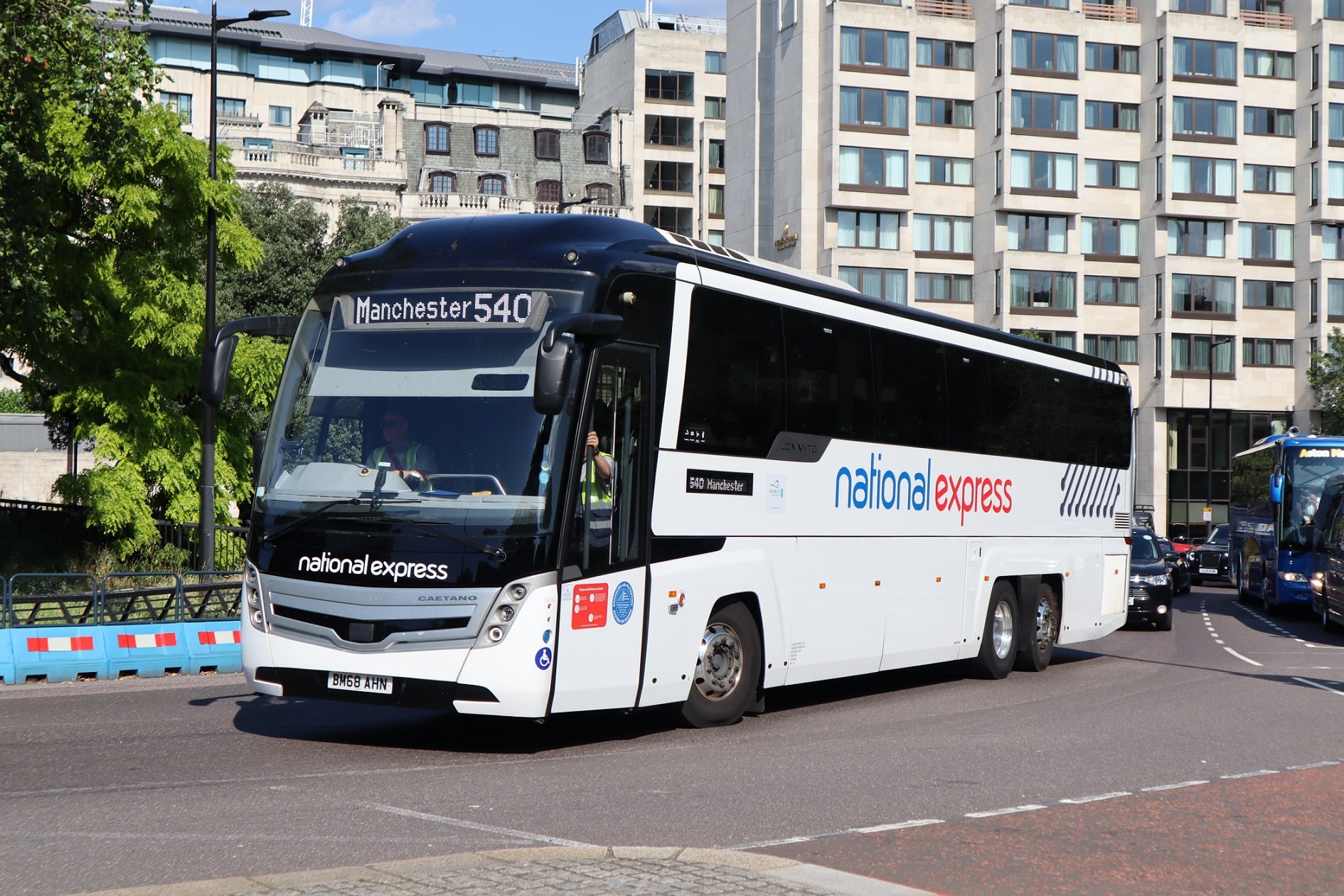
Enhancing visibility of its services is another key for the business. “There are many journeys where coach is the right choice; a direct link where the train would require a change, or where a customer is travelling to or from an airport,” Chris observes.
National Express has gained access to as many sales channels as possible to help convey that message,
But the most basic part of a sustainable network is good service. “We want people to look at a coach service and think it is worth considering. What we don’t want is for there to be a hierarchy of car, train and then coach. Coach should be considered on its own footing, and at the base of that is doing a good job.”
‘Offset interchange’ possibilities for National Express UK Coach
Chris believes that the National Express network will continue to develop and evolve as patronage recovers. It already has some “oddities” created by the linking of services and parking locations. Those factors traditionally made wholesale change difficult, although the suspension of all services during the depths of the pandemic did permit some ‘clean sheet’ work.
Positioning Birmingham as an interchange point is a priority. More coaches will terminate there and return whence they came. That could be seen as reducing the attractiveness of cross-Birmingham journeys, but Chris disagrees.
“Offset interchanges on the hour and half-hour increase journey opportunities. It also gives people a break in an environment that is safe and which we control.” Further benefits will be a reduction in overnight stays for crew and of the need to provide two drivers in some instances.
“When journey times are examined, they could be better under this arrangement,” he continues. “Drivers require a 45-minute break. By using an offset interchange approach, that time can be cut to 30 minutes for the customer.”
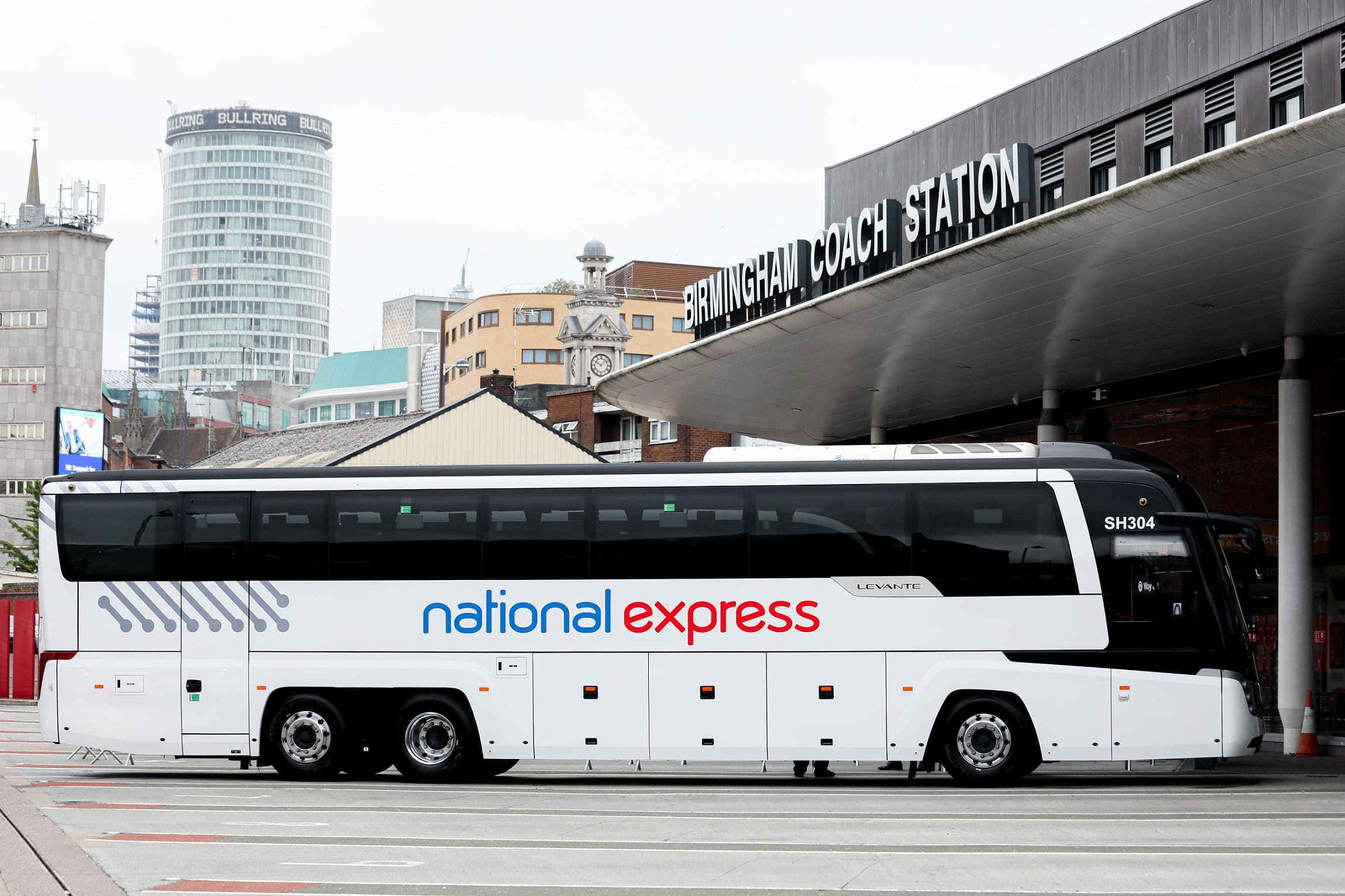
Much work is being put into optimising interchanges while retaining the same number of, or more, journey opportunities.
Travel times are also under the microscope. While National Express “does not want to drop places,” some departures may take more direct routes to allow motorway speeds to be maintained. Other locations will also act as interchange points – Heathrow airport among them.
Greater accessibility part of future vehicle aspirations
In addition to timetables, both vehicles and drivers play a significant part in National Express’s service delivery. It is “always looking towards the next generation of coach,” Chris explains. Safety and customer experience are the two elements that the business prioritises in dialogue with OEMs.
“Safety needs to be so good that customers never need to consider it. But there is more that can be done onboard for comfort. The level of quality there already is excellent, but scope exists to go further, especially to accommodate customers with accessibility needs.”
While potential future changes are under wraps, Chris offers the example that feedback from customers using Caetano Boa Vista double-deckers is that value is placed on premium seating, including around tables. “There is a lot that we can do around that, and we are engaged with it,” he adds.
On accessibility, National Express is contributing to the ongoing review of PSVAR. The operator has seen the number of disabled people that travel by its coaches increase and feedback received from those customers improve over the past five years.
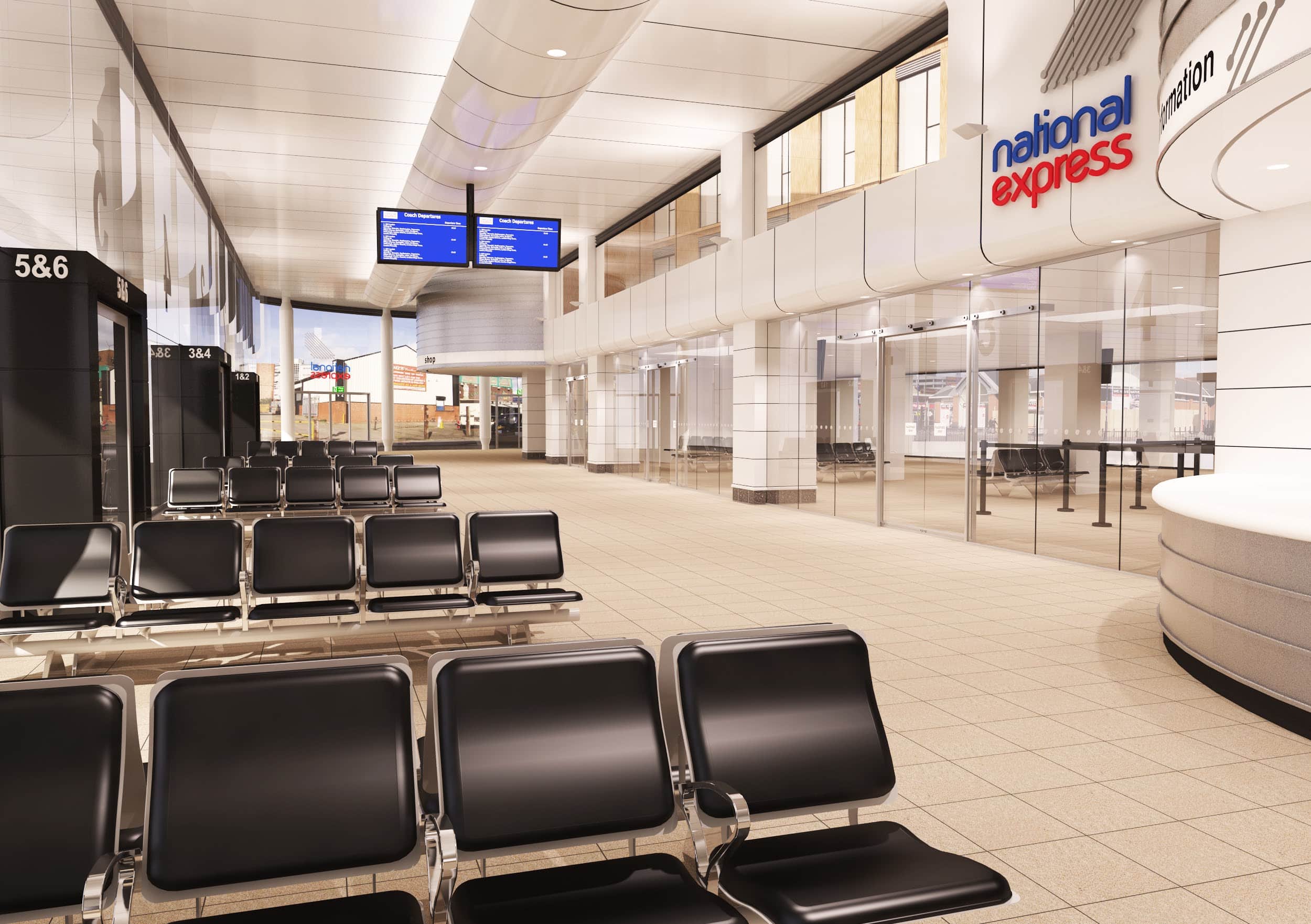
But travel by scheduled coach for a disabled person “is still not as straightforward as it should be,” Chris continues.
“Someone with accessibility needs ought to be able to turn up and go, like any other customer. Making that as easy as possible both for the traveller and the driver is the challenge.
“Our lifts are good and the [wheelchair user] space is the right size. But is the process as quick and as slick as it could be? Not yet.”
Those considerations will be built into future vehicle design, he says, as will recognition of the increasing size of some wheelchairs.
ZE coach hoped for ‘within two years’ for National Express
National Express has already set out its position on decarbonisation: In its UK and Ireland coach businesses, the target is to be zero-emission by 2035. Chris believes that a mix of battery- and hydrogen fuel cell-electric will form the roadmap to that transition
Zero-emission in the National Express-liveried coach fleet may come sooner than later, he continues. The current aspiration – and one that Chris is confident will be delivered – calls for such a vehicle in its colours to be carrying passengers in demonstration service “within two years, and hopefully sooner.”
He is mindful, however, that a move to zero-emission for National Express’s operator partners will be difficult. Currently, they are being kept abreast of developments as the PLC leads.
“On top of all that has happened during COVID-19, I cannot go to partners and ask how they feel about working on hydrogen with us. We will field the first prototype, we will probably run it on a route that utilises existing hydrogen infrastructure, and then we will bring in our partners to see it and offer feedback,” he explains.
Hydrogen is prominent in zero-emission thoughts
A fundamental issue in technology choice is that battery-electric best suits short- to medium-range. It may well be seen on National Express’s airport shuttle routes, Chris says. “But for longer services a higher energy density is needed. That pushes us towards hydrogen fuel cell-electric.”
National Express UK Coach stands to benefit from what fellow subsidiary National Express West Midlands (NXWM) is doing with its bus fleet. Both zero-emission power sources are already present there.
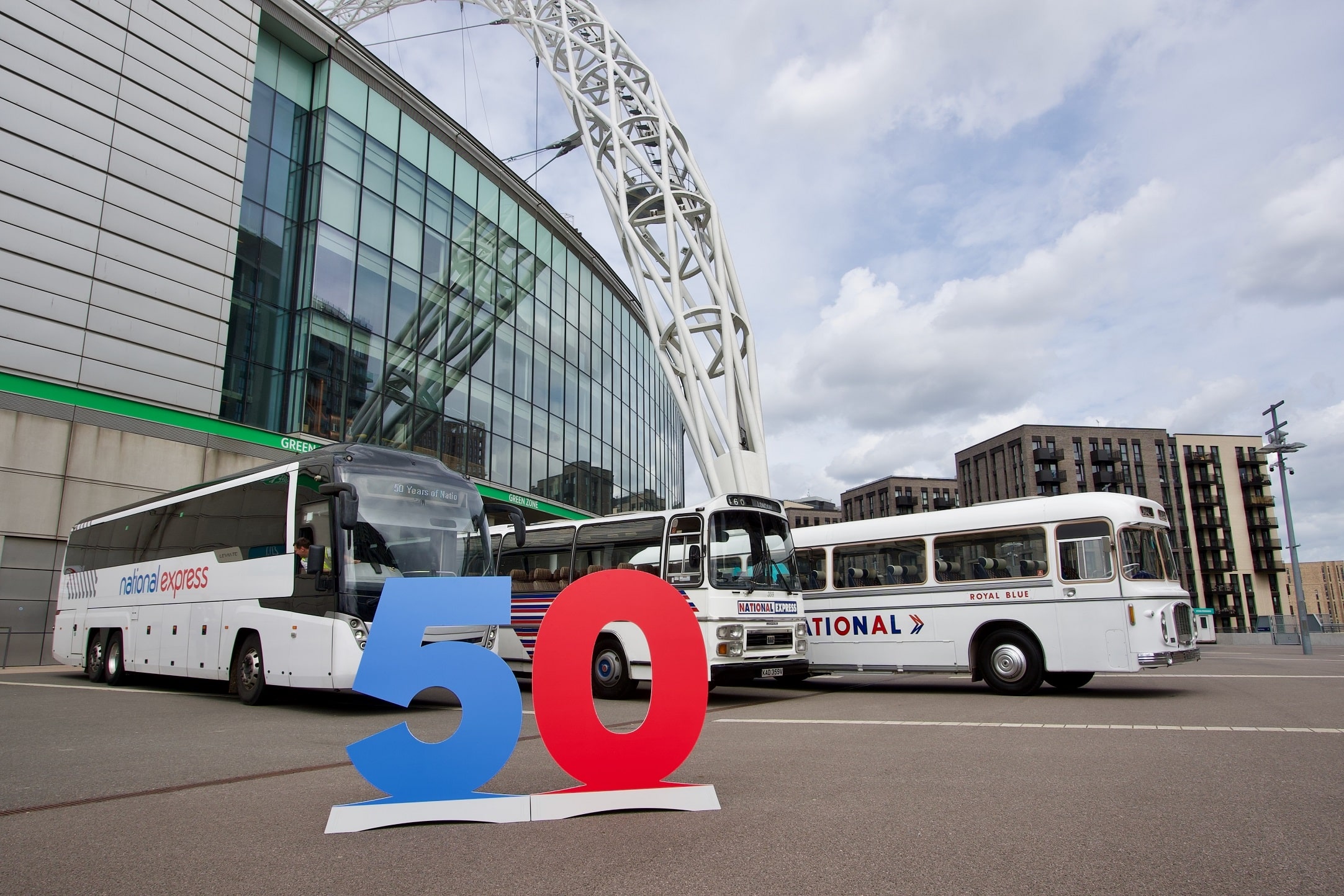
Those technologies will expand their reach with NXWM rapidly in coming months and years. With them will come significant charging and fuelling infrastructure.
“We can start to use that during our trial period,” Chris continues.
He shares the view expressed by others in the sector that use of bus depot infrastructure aside, the coach industry’s shift to zero-emission will largely follow such moves in freight.
Installing hydrogen fuelling infrastructure in relatively small coach depots will be challenging; at large logistics parks and on the strategic road network, it will be much easier.
‘More coaches on the road means more usage’
Having recently celebrated its 50th anniversary, National Express’s coach operation is now looking firmly towards the future. Chris is confident that it can hold, and extend, its leading position in what is an ever more competitive marketplace. Competition stands to increase the visibility of scheduled coach services and grow the overall market, he notes.
There is also huge untapped demand that, even if only a fraction is leveraged by National Express and others, has potential to revolutionise the industry. “The more coaches there are, the more people will see and choose them. Then it comes down to who delivers the best service.”
Promisingly, the government has demonstrated early signs of developing its understanding of coach. National Express has seen better contact and engagement. But could ministers do more? “Yes. Should they do more? Absolutely. Coach is the quickest and best solution to many problems.”





















